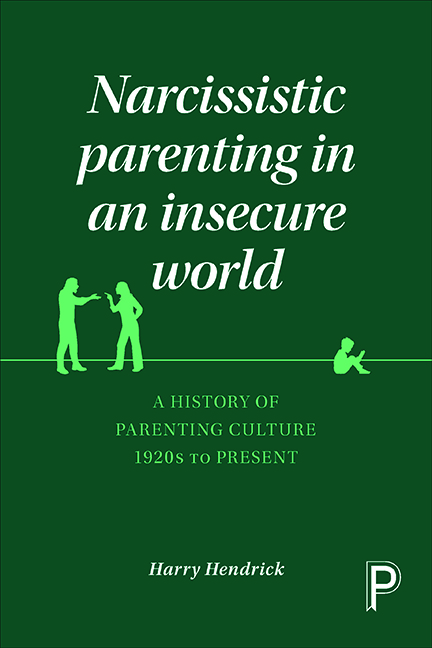Book contents
- Frontmatter
- Dedication
- Contents
- About the author
- Acknowledgements
- Introduction
- Part One The origins of social democracy’s family ideal: 1920s–1940s
- Part Two Characteristics of the ‘Golden Age’: 1940s–early 1970s
- Part Three Influences and examples from the USA
- Part Four Parental narcissism in neoliberal times: 1970s to the present
- Part Five Therapeutic reflections
- Index
Part One - The origins of social democracy’s family ideal: 1920s–1940s
Published online by Cambridge University Press: 05 April 2022
- Frontmatter
- Dedication
- Contents
- About the author
- Acknowledgements
- Introduction
- Part One The origins of social democracy’s family ideal: 1920s–1940s
- Part Two Characteristics of the ‘Golden Age’: 1940s–early 1970s
- Part Three Influences and examples from the USA
- Part Four Parental narcissism in neoliberal times: 1970s to the present
- Part Five Therapeutic reflections
- Index
Summary
Introduction
In some respects, this part of the book deals with a familiar series of developments and events covering, first, the shift in health and welfare discourse from children's bodies to their minds and, second, the move towards a psychoanalytic version of the amicable, peaceable and cooperative family. The main theme of the chapters is the ‘reimagining’ of age relations, most obviously in the inter-war period, hence the title of Chapter One; but also in Chapter Two in the debates about evacuation, problem families and homeless children. I argue that it was during the decades from the 1920s to the 1940s that adult–child age relations were literally re-imagined in an attempt to contribute to thinking through new ways of responding to a number of perceived ‘crises’ in western ‘civilisation’, in such a mode as to maintain, indeed, enhance, liberal values. This response involved trying to blend relationships not only within families, but also between different social groups, and those linking the state to a changing civil society. It seems clear that, notwithstanding some hesitancy, one of the distinctive features of this process was its optimism, a belief in human capabilities to do good, and a desire to relate individual relations to the broader social world.
As I say, what follows is not entirely unfamiliar in describing the coming of psychoanalytic thought and practice, the beginning of the rejection of behaviourism in child rearing, the influence of the child guidance movement, and the effect of a progressive pedagogy for younger children. What is emphasised here, however, is how these inter-war cultural trends were a foretaste of the post-1945 social-democratic liberalisation of parent–child relations (certainly among the middle class). In other words, social change in family life has a much longer and more complicated history than the popular documentation of wartime experiences might lead us to believe. It is important, however, to resist the blunt-edged Foucaultian characterisation of psychological ‘science’, as a means of social regulation. Nor should we see the psychoanalytic shift in inter-war parenting in dour feminist terms as being about ‘prescriptive notions of maternal adequacy’; this would be to privilege gender above other relevant and more important considerations.
- Type
- Chapter
- Information
- Narcissistic Parenting in an Insecure WorldA History of Parenting Culture 1920s to Present, pp. 29 - 32Publisher: Bristol University PressPrint publication year: 2016



